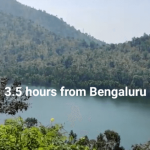By Qamar ZJ
How does the Bruhat Bengaluru Mahanagara Palike (BBMP) asphalt a road in Bengaluru from the ground up? This video shows you a five-hour job in just over nine minutes. However, what you will see are the various procedures that go into making of an asphalted road.
A long waiting game
If a road is completely dug up and needs to be relaid, the procedure is long-drawn compared to road re-laying work. First, the mud is levelled with bulldozers and other machines, big and small. Second, the pipelines (sanitary, gas, water) are fixed if they are broken due to the weight of these heavy-duty vehicles. Everytime the pipes are broken, the house owners have to cough up the money and the people to fix the problem – and this happened repeatedly when 15th B Main Road was being done in HSR Layout’s Sector 3.
The D Day
A day prior, the residents are informed on Whatsapp groups by members of the Residents Welfare Association so that their vehicles are kept away from the road for the road works. Once the work begins, the contractor lines up vehicles and ribbons at all entry points to prevent any trespassing. This is supposed to be done for 48-72 hours, but some citizens removed the ribbons and started plying within 12 hours. The next day, there was Cauvery water leakage, that flooded a portion of the newly-laid road for hours. By the time the people from the Bangalore Water Supply and Sewerage Board (BWSSB) came to fix the leakage, much water had flowed to weaken the road already. They dug up a portion of the road and cemented it.
A visual demo
The video (inserted above) provides all the visual details you need to see some of these salient points. As it’s a completely dug up road to lay sanitary lines and a wider stormwater drain, the soil was quite loose. To settle and harden it, the contractor just put soil and later jelly stones. After a few months, the road was laid. Once the road is cleared of any impediments by the sweepers, a towing vehicle was brought in to remove any vehicles that were still left on the road. The road width is marked with a white line, and the hot-mix is poured on the road for compaction. After the first layer of bigger granules, a second layer of smaller granules are laid to give it a final look.
What should be done
Two things are not done by most contractors after the road is paved, and it happened in this instance as well. The saw dust ash is not used to stabilise the bitumen, and neither are road markings given to help vehicle users and pedestrians alike. Besides, speed humps (with proper markings) on culverts and road intersections are advised soon after a new road is laid to prevent over-speeding in residential lanes. Will the authorities look into this and ensure that the road construction is scientific and thorough from the get go?
IRC standards
Want to know the Indian Road Congress standards that need to be followed while constructing roads, footpaths, flyovers, bridges, and so on? Click here to read this detailed document on the various specifications.



